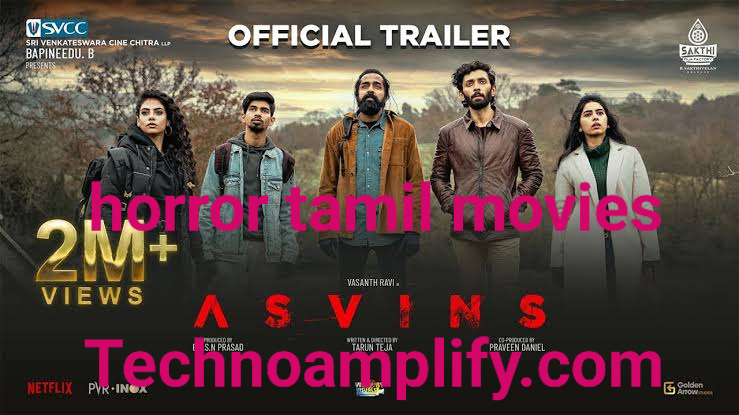Introduction
Tamil cinema has long been a vibrant tapestry of genres, and one genre that continues to captivate audiences is horror. With a rich blend of folklore, mythology, and contemporary storytelling, Tamil horror movies have carved a unique niche in Indian cinema. From spine-chilling supernatural tales to psychological thrillers that leave audiences questioning reality, these films deliver scares, suspense, and often a dose of cultural reflection.
In this comprehensive exploration of Tamil horror movies, we’ll delve into their history, themes, and iconic films that have shaped the genre. We’ll also uncover how these films balance fear and entertainment with stunning visuals, haunting music, and gripping narratives.
The Roots of Tamil Horror Cinema
Tamil horror movies draw heavily from Indian mythology and folklore. Films like Aayiram Jenmangal (1978) introduced audiences to ghostly revenge, a recurring theme in many Tamil horror flicks. Traditional beliefs about spirits and superstitions are often woven into the plot, creating a cultural connection that resonates deeply with the audience.

The evolution of Tamil horror began in the 1950s with films that focused on supernatural elements, such as ghosts and spirits. By the 1970s and 80s, the genre gained momentum, blending horror with family drama and musical elements. Directors like Balaji K. Kumar (Vidiyum Munn) and Mysskin (Pisaasu) later redefined the genre by adding depth and innovation, transforming Tamil horror into a global phenomenon.
Iconic Tamil Horror Films that Defined the Genre
Pisaasu (2014): A Tale of Emotional Horror
Directed by Mysskin, Pisaasu is a groundbreaking film that combines horror with deep emotional undertones. It tells the story of a violinist haunted by a ghost, but instead of the typical scary moments, the film delves into themes of loss, guilt, and redemption.

The movie’s cinematography and background score enhance the eerie atmosphere, creating a perfect blend of fear and empathy. This unique storytelling approach has made Pisaasu a standout example of modern Tamil horror movies.
Kanchana Series: The Blend of Horror and Comedy
Raghava Lawrence’s Kanchana series is an iconic name in Tamil horror cinema, merging comedy and horror to deliver a unique viewing experience. The series follows Raghava, a superstitious man whose life takes a terrifying turn when he becomes possessed by spirits.
The films explore social issues, such as transgender rights in Kanchana 2, while maintaining a balance of humor and fear. The success of this franchise highlights the versatility of Tamil horror, appealing to audiences across demographics.
The Rise of Psychological Horror in Tamil Cinema
While supernatural horror remains a popular choice, Tamil cinema has also embraced psychological horror, a genre that focuses on the human mind’s capacity for fear. Films like Game Over (2019), starring Taapsee Pannu, showcase the protagonist’s internal struggles and fears, turning everyday scenarios into sources of dread.

Psychological horror often relies on subtle storytelling, creating an unsettling atmosphere without resorting to jump scares. These films resonate with modern audiences, offering a refreshing departure from traditional horror tropes.
The Role of Music and Sound in Tamil Horror
One of the defining characteristics of Tamil horror movies is their use of music and sound to amplify fear. Background scores by maestros like Ilaiyaraaja and Santhosh Narayanan have heightened tension in films like Demonte Colony (2015) and Aval (2017).
The haunting melodies and chilling sound effects not only set the mood but also become integral to the storytelling. In many cases, the music itself becomes a character, guiding the audience through the film’s suspenseful twists and turns.
Special Effects and Cinematic Techniques in Tamil Horror
The advent of technology and visual effects has revolutionized Tamil horror cinema. Films like Iruttu (2019) and Petromax (2019) use advanced CGI to bring terrifying entities to life, creating a more immersive experience for viewers.

Cinematography also plays a crucial role in enhancing the eerie atmosphere. Directors experiment with lighting, camera angles, and slow-motion sequences to build tension and keep the audience on edge.
The Cultural Significance of Tamil Horror Movies
Tamil horror films often go beyond entertainment, reflecting societal fears and values. For instance, Eeram (2009) explores themes of love, betrayal, and vengeance, all while incorporating the concept of water as a supernatural medium.
These films also shed light on cultural taboos and stigmas, using horror as a lens to discuss issues like mental health, gender inequality, and social injustice. This cultural depth makes Tamil horror not just thrilling but also thought-provoking.
Challenges and Future of Tamil Horror Cinema
Despite its successes, the Tamil horror genre faces challenges such as over-reliance on clichés like vengeful spirits or predictable plotlines. However, filmmakers are pushing boundaries with innovative narratives and diverse genres.

The global success of Tamil films has opened doors for collaborations and international recognition, promising a bright future for Tamil horror movies. Directors are experimenting with anthology formats (Navarasa) and blending horror with science fiction, ensuring the genre remains fresh and relevant.
Conclusion: The Enduring Appeal of Tamil Horror
Tamil horror movies continue to captivate audiences with their unique storytelling, cultural depth, and innovative filmmaking techniques. Whether it’s the spine-chilling scares of Aval or the emotional resonance of Pisaasu, these films offer something for every horror enthusiast.
With a rich history and an evolving narrative style, Tamil horror is more than just a genre; it’s a reflection of societal fears and fantasies. As technology and storytelling techniques advance, the future of Tamil horror promises even more thrilling experiences that will leave audiences on the edge of their seats.
FAQs About Tamil Horror Movies
Q1: What makes Tamil horror movies unique?
A: Tamil horror films blend supernatural elements with cultural themes, creating stories that resonate deeply with audiences while offering innovative scares.
Q2: Which Tamil horror movie is considered a classic?
A: Pisaasu (2014) and Kanchana series are iconic films that have redefined the genre.
Q3: How do Tamil horror films balance fear and entertainment?
A: By combining traditional horror tropes with humor, emotional depth, and social messages, Tamil horror films offer a balanced viewing experience.
Q4: Are Tamil horror movies popular internationally?
A: Yes, the unique storytelling and cultural depth of Tamil horror have garnered international acclaim and audiences.
Q5: What is the future of Tamil horror cinema?
A: The future looks promising, with filmmakers exploring new sub-genres like psychological horror, science fiction, and anthologies.
Tamil horror cinema is a treasure trove of fear, creativity, and cultural richness, continually evolving to keep audiences entertained and terrified.
Also Read This : Exploring the Dark Corners of Tamil Horror Cinema: A Journey into Fear, Folklore, and Fright


